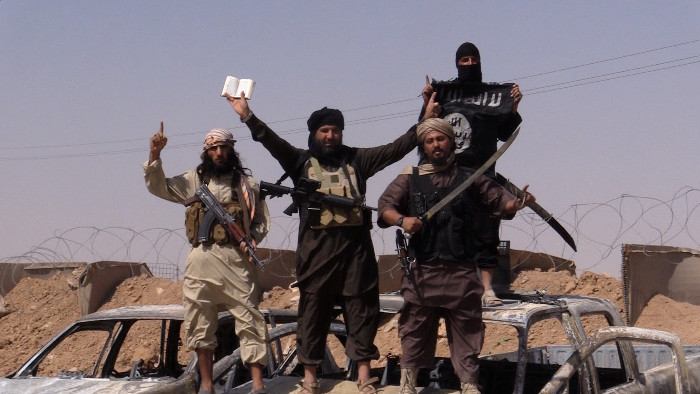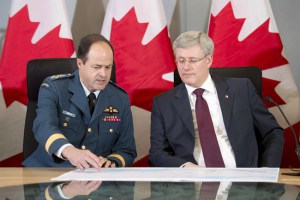[captionpix align=”left” theme=”elegant” width=”320″ imgsrc=” http://i.telegraph.co.uk/multimedia/archive/02132/general-belgrano_2132699b.jpg ” captiontext=” The sinking of the Belgrano, an Argentine ship, was the most controversial issue of British operations as the vessel was sunk by British submarines even though it was sailing away from the Falklands “]
Background: The UK, Argentina and the Falklands
This June, the UK celebrated the thirtieth anniversary of its victory in the Falklands War, which took place between April and June 1982. It was sparked by the then-Argentine military junta’s invasion of the British-owned Falkland Islands just off its coast, which invited a determined and ultimately successful response from the Thatcher government. The 74-day war, with 255 British and 650 Argentine fatalities, was primarily a matter of conflicting claims, a dispute that continues to this day. Buenos Aires claims sovereignty over the British dependency, to which Argentines refer to as the “Malvinas,” by citing its proximity to Argentina as well as The UK’s unlawful colonisation of the islands from 1833. London denies these assertions and cites the islanders’ desire for the Falklands to be British.
Thirty years after the conflict, British-Argentine hostility over the Falklands has reached a new level, reviving a new war of words. Argentinean President Cristina Fernández de Kirchner has been advocating Argentine sovereignty over the Falklands, resulting in many clashes with British Prime Minister David Cameron, garnering much public attention. In a well-documented public spat on 19 June at the 2012 G-20 Summit, Cameron approached Kirchner to ask her to respect the pro-British views of the islanders, whereby Kirchner handed over an envelope of UN resolutions calling for a British-Argentine dialogue over the Falklands issue. Cameron simply walked away, refusing to take the envelope and, a few days later, emphasized that there would be no negotiations over the islands’ future, which would be determined by a referendum next year.
Tension over the Falklands’ sovereignty had been building up over the past few years. In 2006, London’s decision to begin granting 25-year fishing concessions around the Falklands prompted outrage from Buenos Aires, which argued that the UK had no authority to issue fishing rights in “Argentine waters.” In response, Argentina stepped up its verbal attacks on an “illegitimate” British colonial government while also demanding that the UN rule on the islands’ status. Moreover, when former Prime Minister Gordon Brown, like Cameron, rejected talks over the Falklands with Kirchner at the 2009 G-20 summit in London, Argentina filed a formal claim over the continental plate that encompasses the Falklands and other British territories such as the South Sandwich Islands and South Georgia.
In another escalation, when three British firms announced their intention to begin oil exploration just north of the Falklands, Argentina announced the need for a permit to use its waters. Furthermore, in December 2011, Mercosur, a trade bloc consisting of Argentina, Brazil, Paraguay and Uruguay, closed its ports to any ships flying a Falkland Islands flag.
Why the fuss?
[captionpix align=”left” theme=”elegant” width=”320″ imgsrc=” http://s1.hubimg.com/u/2441928_f520.jpg ” captiontext=” British plans to develop the Falklands’ rich oil resources is a main point of dispute with Argentina “]
History is undoubtedly important in the struggle for the Falklands. But as recent developments have shown, oil has also been at the centre of the controversy. Rockhopper Exploration hopes to develop the Sea Lion oil field, the Falklands basin’s first, which contains an estimated 1.3 billion barrels, while Falkland Oil and Gas Ltd (FOGL) hope to begin drilling in the 4.7 billion barrel Loligo field in July. The Falklands’ oil reserves are estimated to be three times as large as the UK’s. Premier Oil, backed by the Foreign Office, is seeking a 60% ownership licence to explore oil fields. Therefore it is not surprising that other countries have shown immense attentiveness to these developments. It was announced in the first week of June that Électricité de France (EDF) would acquire 25% of FOGL’s northern licenses. From Argentina’s perspective this “scramble” for oil is an unjustified encroachment on its sovereignty. Additionally, increased British naval protection of oil ventures has only further angered the Argentines.
However, despite calling for a diplomatic solution and working through the UN, diplomacy is not on President Kirchner’s side. Firstly, Kirchner had shot herself in the foot when Buenos Aires nationalized Yacimientos Petrolíferos Fiscales (YPF), the country’s largest oil company, depriving the Spanish oil giant Repsol of its majority stake. The move was widely condemned not only by Madrid, which threatened “action” on trade relations, but also by the European Parliament. In connection with sharp rhetoric regarding the Falklands, international interest in its oil fields means that, for many, the government takeover of YPF could foreshadow how the “Malvinas” petroleum industry would look.
Argentina’s relations with its Latin American neighbours will hardly help its position. Trade disputes are rampant with Uruguay, Mexico and especially Paraguay, thus making regional solidarity only a façade. While Kirchner has harnessed nationalism among Argentines her ability to deliver results is questionable.
By contrast, The UK is experiencing somewhat of a diplomatic victory. Kirchner’s nationalist rhetoric coupled with populist antics has only strengthened David Cameron’s position. Moreover, the disparity between Argentina’s seemingly undemocratic, “imperial” claims and The UK’s emphasis on the islanders determining their own future in a referendum only consolidates the legitimacy of British rule on the Falklands. Appearing before the UN Decolonization Committee, Roger Edwards, a legislator on the island cited an opinion poll whereby 96% of the islands’ population approved of continued British rule. Overall, the future of the Falklands will most likely become a matter of self-determination.
Foreign Policy and Domestic Politics
What both quarrelling countries have in common is the need to find a distraction for domestic problems. At home, Kirchner faces rising inflation, which economists have estimated at 22%. Lower and middle class households have been hit the hardest. Given that two-thirds of Argentines support the return of the Falklands to Buenos Aires, Kirchner has chosen a strategic, yet implausible, issue to pursue. In fact, with the UK being a key contributor to the Argentine economy through the EU and the IMF, Argentina has hardly helped itself in propelling this debacle
[captionpix align=”left” theme=”elegant” width=”320″ imgsrc=” http://m24digital.com/en/wp-content/uploads/2012/06/kirchner-y-cameron-por-diarios-ingleses-.jpg ” captiontext=” Both Kirchner and Cameron hope for a victory in the Falklands dispute to lessen the severity of problems at home “]
The coalition government at Westminster also faces significant challenges ahead with a double-dip recession, scandals and botched efforts at House of Lords reform. If Number 10 needs an external issue as a diversion, the Falklands would be a good choice as London has the upper hand.




